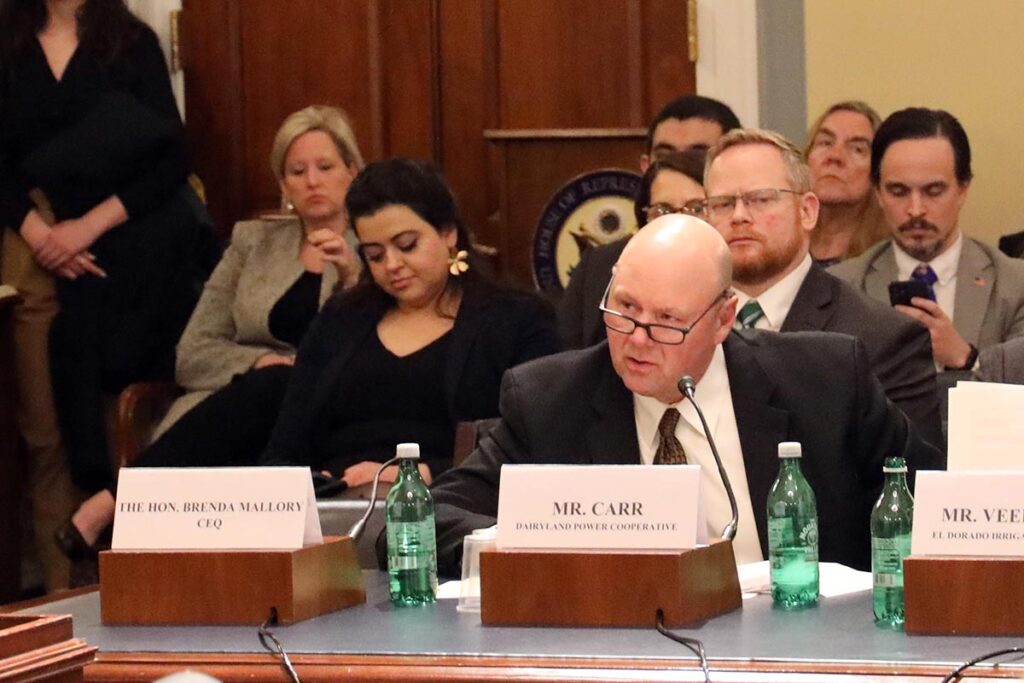
The federal environmental review process takes too long, costs too much and makes it more difficult for electric cooperatives to provide reliable, affordable power to their members, a Dairyland Power Cooperative leader told a House committee Tuesday.
“Electric cooperatives like Dairyland play a leading role in the ongoing transformation of the electric sector and often need to obtain permits or other authorizations from federal agencies to construct and maintain electric generation, transmission and distribution infrastructure,” John Carr, vice president of strategic growth at the Wisconsin-based generation and transmission co-op, told members of the House Natural Resources Committee.
“Dairyland and other electric co-ops support the appropriate consideration of potential environmental impacts of energy projects during the permitting process, but the existing process impedes our ability to deploy clean energy to meet the current and future needs of our consumers and communities. We simply must reform the process to enable the transition that is already underway and to ensure it can be done reliably and affordably for our customers.”
Co-ops must undergo National Environment Policy Act reviews when they seek permits to build new energy projects and when they want to remove vegetation that is threatening power lines on federal land. They also are required to go through the permitting process when they apply for Rural Utilities Service loans to expand, upgrade and modernize their systems.
“As Dairyland Power has experienced firsthand, lengthy NEPA reviews and litigation delay the completion of critical infrastructure projects, require significantly more time and resources, and have a direct negative impact on communities served by these projects,” Carr said.
The co-op’s efforts to build a transmission line that would cross a federal wildlife refuge to deliver wind energy from the upper Great Plains to southern Wisconsin has been delayed for more than three years because of litigation. It was approved by federal agencies in January 2020 but has been tied up in court by environmental groups challenging the decision.
“There are currently over 100 renewable generation projects depending upon the construction of the Cardinal-Hickory Creek transmission line,” Carr said. “These projects will generate enough electricity to power millions of homes with clean energy. But only if the line can be completed.”
He recommended four priorities for lawmakers as they look to reform permitting processes:
- Establish firm parameters for environmental reviews, including how long the reviews should take.
- Promote greater involvement by co-ops and other permit applicants in the process while still giving federal agencies the final word.
- Ensure faster, more efficient reviews for projects that clearly have minimal environmental impact.
- Limit unnecessary litigation of NEPA reviews. Put time limits on how long someone can wait before filing a lawsuit against a federal agency after the agency grants a permit.
Carr called on lawmakers to support the BUILDER Act, which contains many of those recommendations. The bill’s chief sponsor is Rep. Garret Graves, R-La.
“Meeting current and future energy needs is a major challenge,” he said. “Rising to meet this challenge will require collaboration, creativity and flexibility. Dairyland and our electric co-op brethren are ready to work with all of you and your colleagues in Congress and your federal agency partners to meet these needs.”
Erin Kelly is a staff writer for NRECA.